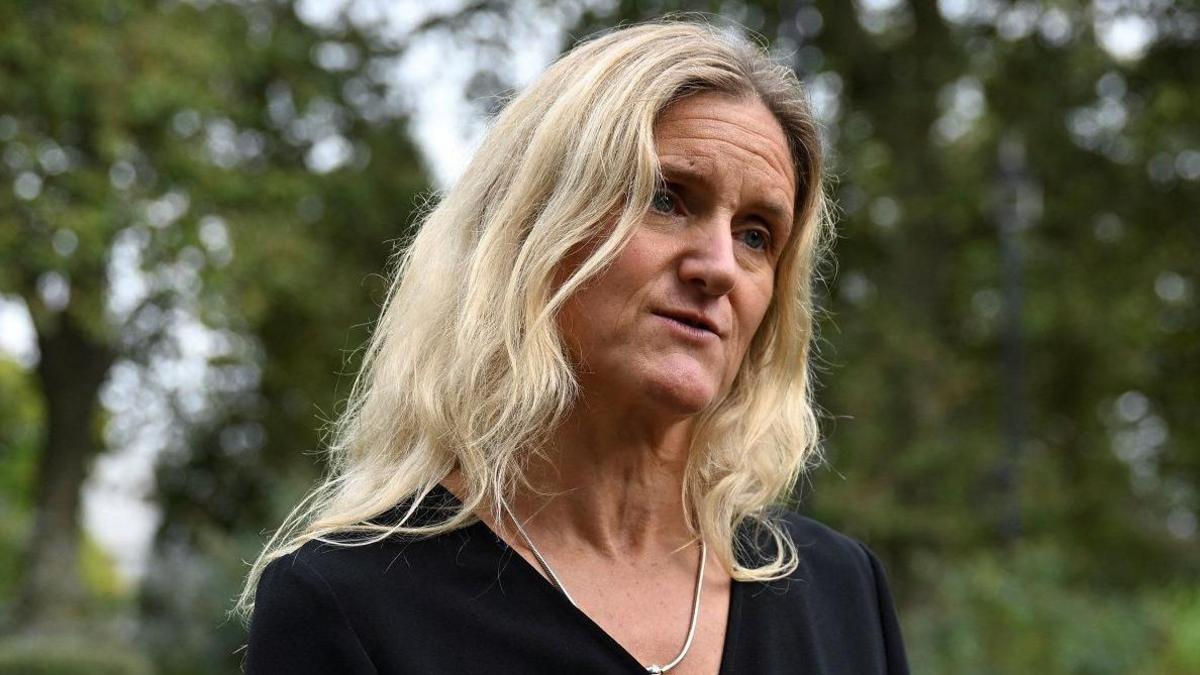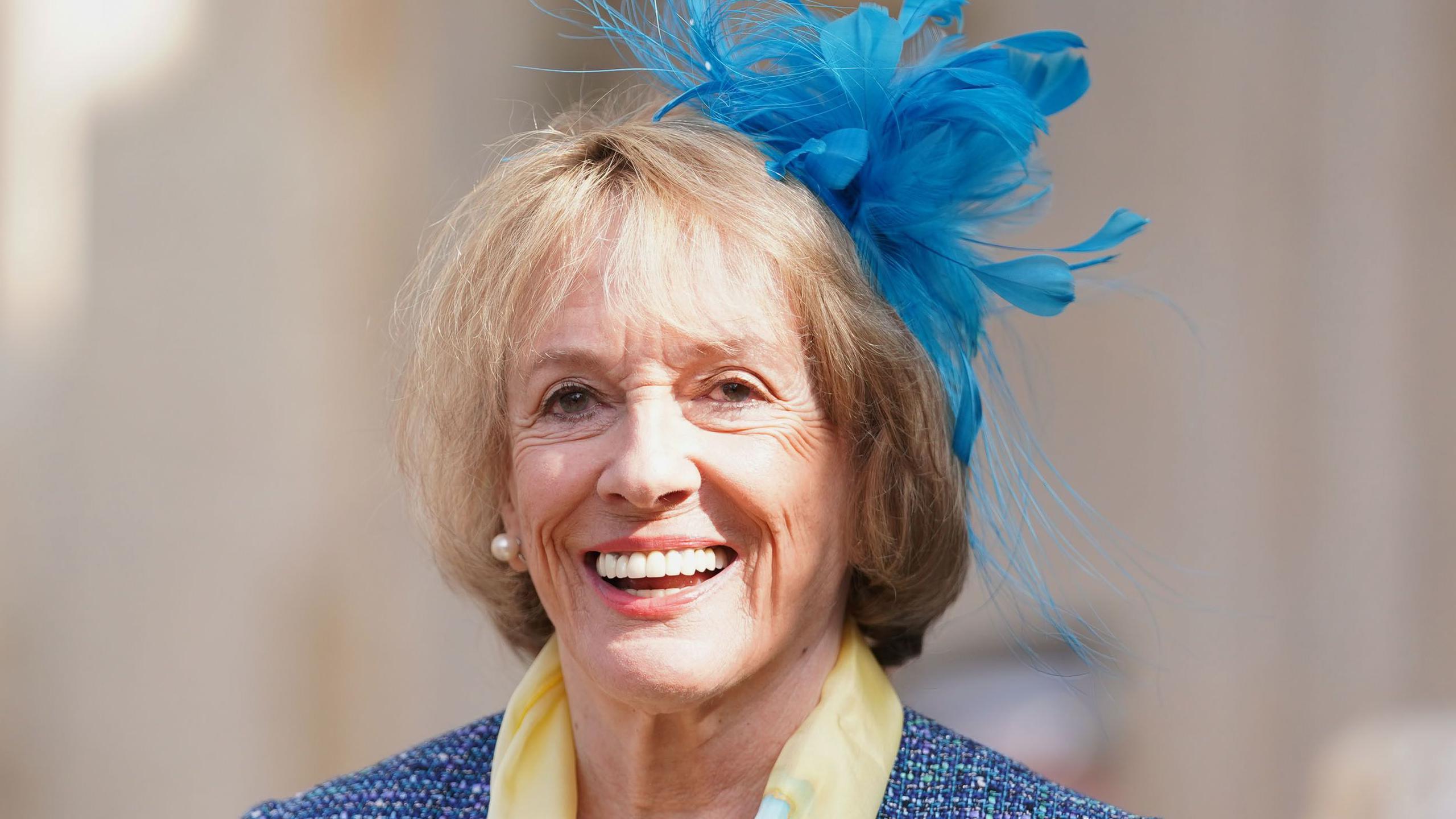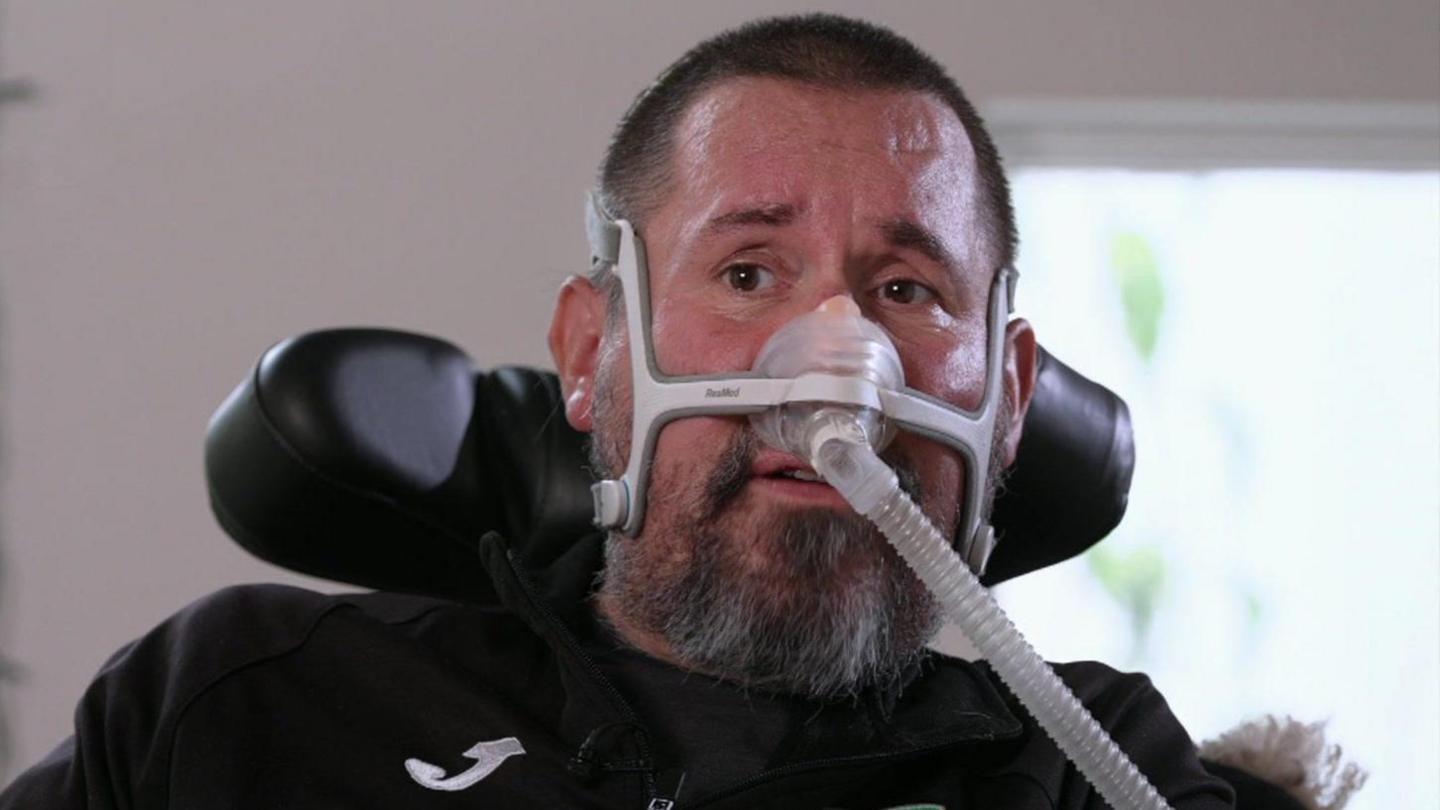Assisted dying could stop harrowing deaths, says MP behind bill

Labour MP Kim Leadbeater says the UK's current law is not fit for purpose
- Published
The MP behind a bid to legalise assisted dying in England and Wales has argued it would help stop people experiencing "very harrowing" deaths, as she unveiled details of her proposals.
Under a bill published on Monday, external, terminally ill adults expected to die within six months could seek help to end their life if two doctors and a High Court judge verify they are eligible and have made their decision voluntarily.
Kim Leadbeater, the Labour MP behind the bill, said her plan is focused on “shortening death rather than ending life,” and ensures "the strictest safeguards anywhere in the world".
However, opponents have raised concerns that people could feel pressured into ending their lives.
MPs will take part in an initial debate and vote on the Terminally Ill Adults (End of Life) Bill on 29 November.
Current laws in the UK prevent people from asking for medical help to die.
The bill would require those who apply for assisted dying to:
Be over the age of 18, a resident in England and Wales and registered with a GP for at least 12 months
Have the mental capacity to make a choice about ending their life
Express a "clear, settled and informed" wish, free from coercion or pressure, at every stage of the process
The legislation will require two independent doctors to determine whether the person satisfies the criteria to take their own life.
A judge will also take evidence from at least one doctor, and could also question the terminally ill person before allowing self-administration of the medication.
The individual would be allowed to change their mind at any time, and no doctors would be obliged to take part in the process.
The law would still forbid doctors or others from ending a person’s life. If all the criteria and safeguards are met, the substance to end someone's life must be self-administered.
Under the bill, a doctor may only prepare the substance or assist the individual to ingest.
The proposed legislation would also make it illegal to pressure or coerce someone into declaring they want to end their life, carrying a possible 14-year prison sentence.
Leadbeater told the BBC "the status quo is not fit for purpose" and leads to "people having very harrowing, very distressing deaths - both for themselves and for their family".
Her bill could help end this by "addressing these shortcomings in the current system," she said.
Leadbeater called her plans "the strongest most robust piece of legislation on this issue in the world".
"The use of a High Court judge is unique, there's no other jurisdiction that has that extra legislative layer of protection and safeguarding," she added.
Assisted dying 'likely to need Welsh vote'
- Published12 November 2024
'I might be dead before a decision is made': Terminally-ill people on assisted dying
- Published12 November 2024
The government has adopted a neutral stance on the proposed law, and Labour MPs will not be instructed how to vote. The Conservatives and Liberal Democrats have also confirmed they will give their MPs a free vote on the proposals.
Prime Minister Sir Keir Starmer said he was "not going to be putting any pressure whatsoever" on his own MPs, and they would be able to "make their own mind up, as I will be".
"Obviously a lot will depend on the detail and we need to get the balance right, but I've always argued there will need to be proper safeguards in place," he added.
This is the first Commons vote on assisted dying since MPs rejected allowing terminally ill adults to end their lives under medical supervision in 2015.
If the bill passes the first vote later this month, it will receive further scrutiny from MPs and peers, who could choose to amend it.
A final version would require approval by both the House of Commons and Lords to become law.
A separate bill to legalise assisted dying has also been proposed in Scotland, drafted by a Liberal Democrat member of the Scottish Parliament. He expects it to be debated this autumn.

Dame Esther Rantzen, who is terminally ill, has called for a change in the law
Campaigners supporting the bill, including broadcaster Dame Esther Rantzen, argue terminally ill people should get a choice over how they die to avoid unnecessary suffering.
Dame Esther, who revealed last year she had joined Dignitas after a terminal cancer diagnosis, described the new bill as “wonderful” and said reform would stop more people having to go through "agonising deaths".
Elise Burns, from Kent, who is terminally ill with breast cancer, told the BBC she supports the bill as she is "scared of a bad death – a long, drawn out, brutal, horrific death".
"But also I’m concerned for my family and friends. I don’t want them to see me go through that," Ms Burns said.
However, Nik Ward, who lives in Surrey and has motor neurone disease, is against changing the law.
He told the BBC he might have sought help to die if it had been an option after he was diagnosed, but now says life is precious and he is opposed to assisted dying.
"It redefines the norms of our society, in a way that is, I think, terribly dangerous," he said.

A majority of MPs have not announced their position on the bill, but those who have spoken have are divided by ethics and practical concerns.
Conservative MP Kit Malthouse, who is co-sponsoring the bill, told the BBC's World Tonight he felt a lot of the concerns raised by other MPs had been addressed by the bill's safeguards, but called the status quo a "horror show".
Lib Dem leader Sir Ed Davey said he plans to vote against the bill, fearing it could make people “less free” rather than expand rights for the terminally ill.
"The real problem is people who are terminally ill could feel under real pressure psychologically at the end of their life," Sir Ed said.
The government should instead focus on improving palliative care to ensure less painful deaths, Sir Ed said, adding: "I think it would change the debate for some people".
Dr Gordon Macdonald, chief executive of Care Not Killing, which is campaigning against the bill, said: "The safest law is the one we currently have.
"This bill is being rushed with indecent haste and ignores the deep-seated problems in the UK’s broken and patchy palliative care system," he added.
Conservative MP Danny Kruger told the BBC that, despite the efforts that have been made to add safeguards to the bill, he was concerned that in practice judges and doctors would end up "rubber-stamping" decisions.
He said he agreed with Leadbeater that "the status quo is not OK", but felt it was palliative care that should be overhauled.
"Due to innovations in medicine, pain relief and treatment… it should not be necessary for anybody to die in unbearable, physical agony any more," he said.
Health Secretary Wes Streeting, who has said he will vote against the bill, has raised similar concerns, saying end-of-life care is currently not good enough to give people a real choice.
In response, Leadbeater said: "This is not about either improving palliative care or giving people the choice at the end of life that I believe they deserve.
"We have to do both, and they have to run in parallel."
Get in touch
Have you been affected by the issues raised in this story?